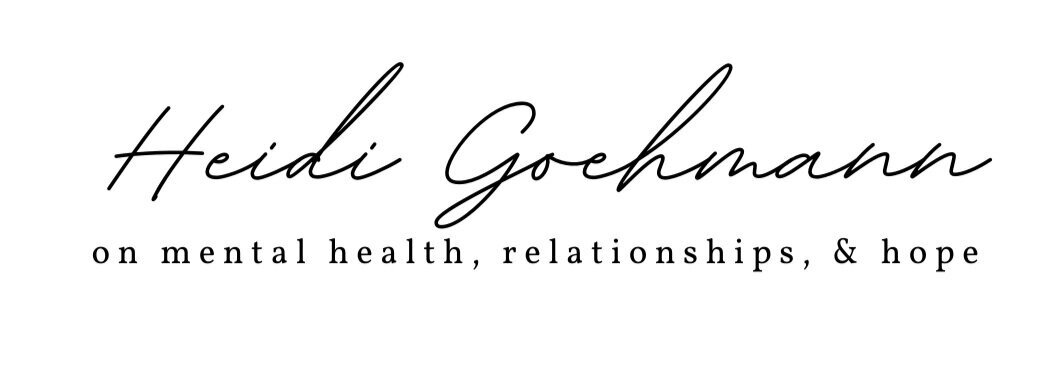Empathy: Better with Boundaries
Empathy is a truly lovely emotion. Feeling heard and seen, having our story held by another human being is connecting. This expanded variety of kindness is healing. Empathy is vital in a messy world that often seems harsh or lonely.
Yet, one of the hallmarks of true empathy is empathy’s natural and much needed boundaries. Empathy goes a bit far when we set out to feel someone’s emotions enough to take their pain away, or when we can accidentally sponge their thoughts and emotions into our core. People often feel most understood when we meet them with an awareness that they are still them and we are still we. Their problem is not ours, rather we have chosen to come alongside them, to turn our face toward them in the struggle, not away from them.
Empathy is best as a duality. We want to feel alongside someone, and hold the “withness” in remembrance that this is their story, not our own. Over-empathy happens when our own emotions about someone’s struggle flood us in such a way that they take over our being. Our bodies and minds will detach when we are flooded, rather than lean in, in order to keep us safe. It is hard to be truly present with someone without the remembrance of “This is yours. I am with you in it. I would take it away if I could, but that is not the reality in which we live.” When we try to hold someone’s emotions, thoughts, or experiences for them, we end up both hurting. Often, the person needing the empathy walks away feeling less understood, or at least with less comfort than we intended.
Empathy with boundaries takes a deep breath to listen, rather than absorb.
Empathy with boundaries gives space for all that someone is saying, feeling, and processing, and also space for each person to be themselves with their own journey. This duality of you and me in the listening sends a metaphysical message: there is space for all things here, not partial things or half things, but you & me, not you or me.
I’ve been doing a lot of work and study around boundaries lately, particularly boundaries as an expression of love. Boundaries are not the opposite of love, they are in themselves kindness in clarity, the distance an honest expression of what it means to be human, but human together. We might have boundaries that express a love for ourselves, for God, or for others. Boundaries are best with flexibility, a little tenacity, and a lot of that expressed intention of love. Empathy is best also with a little flexibility, a little tenacity and chasing down, and a lot of expressed intention of love. Empathy are peas in a pod, helping provide growth in a relationship and in each individual. Empathy nor boundaries are ever “easy” to discern or move through. Easy in relationships isn’t really the goal, knowing deeper is.
In a recent podcast episode Dave and I establish seven tips for practicing empathy with boundaries. The practice of empathy with boundaries may not be simple, but it is worthwhile and contributes to relational health rather than burnout or compassion fatigue. Things like apathy, withdraw, and isolation can happen when we have been so busy helping others feel seen, our sense of self feels lost in the shuffle.
A few of the boundary tips for empathy we note in the podcast include:
the concept of self-differentiation
bias awareness
recognizing our capacity
I also offer a tool for practicing boundaries related to bias awareness and bringing stronger empathy to those around us.
Subscribers to heidigoehmann.com, receive a bonus tool related to sorting what kinds of empathy people may need at different times as well as what empathy is in our capacity to give at any given time. You can subscribe through email at the very bottom of this page.
A story:
Something terrible in the world happens. Another school shooting, more violence, someone goes another night without food, another day of loss. I hope online to see my nephew’s birthday pictures, and instead I see someone’s heartbreak up close. Can I take their emotions on for them? Have I saved someone heartache by holding what is there’s and making it my own? No. It does not work, rather I can only reach across. I can notice and name alongside. I can acknowledge the reality of a broken world with lots of turmoil and hope in there somewhere. I can sit with some people God has entrusted to me. I can advocate for policy and change. I cannot hold it all so close to my chest as to act like it is my own. Empathy holds out its hands and states, “I see you. I hear you. You are not lost in this madness.”

